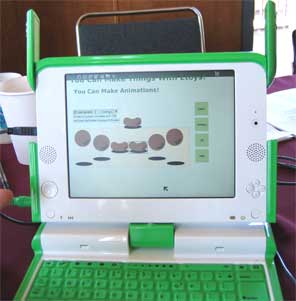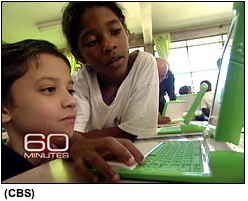 I am increasingly concerned about the fragility of the Internet. With our data living more and more in the cloud, we are vulnerable when networks fail. Without email, without the documents I’m writing or editing, I have to sit out any network blackout that takes place. This happens to me more often than I’d like – probably a couple of times a month in my home office. I’m on Comcast cable for my connectivity, and though I frequently get 10 megabits/second of bandwidth, and almost always have at least 1.5 mbs, there are times when it gets so unreliable it might as well not be there, and then there are times when it just stops working for a couple of hours. [Read more…]
I am increasingly concerned about the fragility of the Internet. With our data living more and more in the cloud, we are vulnerable when networks fail. Without email, without the documents I’m writing or editing, I have to sit out any network blackout that takes place. This happens to me more often than I’d like – probably a couple of times a month in my home office. I’m on Comcast cable for my connectivity, and though I frequently get 10 megabits/second of bandwidth, and almost always have at least 1.5 mbs, there are times when it gets so unreliable it might as well not be there, and then there are times when it just stops working for a couple of hours. [Read more…]
The $100 laptop at International Symposium on Digital Earth 5
 |
|
| The $100 laptop @ ISDE5 |
The International Symposium on Digital Earth was an opportunity for a few hundred experts and other interested individuals to get together, see and discuss ways in which online information systems are making it possible to explore our planet.
The most obvious, to me, being Google Earth. But there are lots and lots of others.
As I walked into UC Berkeley to register, I stumbled across Ed Cherlin, who I’ve known for a few years as a knowledgeable and good-hearted promoter of the Simputer (Simple Computer). This time he was wearing a volunteer staff shirt for ISDE5 and carrying an XO (the “$100 computer”) in his hand. Hmm, an XO. Time to talk to Ed I think! [Read more…]
“The Other” $100 Laptops
 Techmeme tracks news all over the web, and a link on Techmeme today to a BBC article brought to my attention yet another inexpensive laptop computer for kids. Intel has a $200+ laptop (the “$100 laptop” is now close to $175) that could also be in the running.
Techmeme tracks news all over the web, and a link on Techmeme today to a BBC article brought to my attention yet another inexpensive laptop computer for kids. Intel has a $200+ laptop (the “$100 laptop” is now close to $175) that could also be in the running.
 And let’s not ignore other efforts to create inexpensive computers, like Simputer and the recent announcement that India seeks to create a $10 laptop computer. (That’s, of course, going to be extremely difficult, but it does show that $100 may still be too high a price to achieve “everywhere” penetration.)
And let’s not ignore other efforts to create inexpensive computers, like Simputer and the recent announcement that India seeks to create a $10 laptop computer. (That’s, of course, going to be extremely difficult, but it does show that $100 may still be too high a price to achieve “everywhere” penetration.)
 On CBS News, Lesley Stahl interviewed Nick Negroponte about the computer. There’s video there to be viewed. This is the CBS-OLPC institutional view, of course, but the discussion about OLPC in the blogosphere has gotten so negative lately that some positivity is welcome!
On CBS News, Lesley Stahl interviewed Nick Negroponte about the computer. There’s video there to be viewed. This is the CBS-OLPC institutional view, of course, but the discussion about OLPC in the blogosphere has gotten so negative lately that some positivity is welcome!
The Intel Classmate
- Google video of the first prototype of the Intel Eduwise computer (later the Classmate) at trade show (May 2006)
- C|Net article on Intel’s Classmate
- Brazil to test…Classmate
- A technical comparison of the OLPC “XO” and the Intel Classmate
- Wikipedia entry on the Intel Classmate
The Simputer (Simple Computer)
- Wikipedia entry on the Simputer
- Simputer web site
-posted using Ecto
Can I please have 1/10 of the $100 laptop?
 The Times of India today (5 May) reported that Indian researchers are striving to create a $10 laptop – having rejected the $100 laptop (now way over $100) as too expensive. Yeah, that may be true for many, many countries. $100 (or $150 or $175 or $200) could add up to a half year of labor for many people in many places.
The Times of India today (5 May) reported that Indian researchers are striving to create a $10 laptop – having rejected the $100 laptop (now way over $100) as too expensive. Yeah, that may be true for many, many countries. $100 (or $150 or $175 or $200) could add up to a half year of labor for many people in many places.
Apparently the South-Asian researchers have gotten the cost down to $47 so far, labor included.
They report “A meeting of industry and academia is to take place in IISc, Bangalore, later this month to go through the two designs and invite more suggestions.”
Put a Little Sugar on it (OLPC)
Wayne Hodgins has posted a good “current news” article that points to a number of other online comments on the One Laptop Per Child (OLPC) initiative (the $100 computer). Wayne refers to Jeremy Allison’s article “A laptop to change the world” and Wayne quotes Jeremy’s final statement from the article “If it succeeds, I think it will change the world in ways we currently can’t envisage.” The second I start thinking about that I recognize that the Sugar interface that’s being built for the laptop which tag-lined this way – “Sugar is the core of the OLPC Human Interface. Its goal is to turn the Laptop into a fun, easy to use, social experience that promotes sharing and learning.” is what might accomplish this.
And I’m going to emphasize those words “sharing” and “social” – I think that’s where the laptop will have its greatest effect (that is IF they really can keep these computers networked). Computers and networks are for communication as much as they’re for computing. Actually FAR MORE for communication than for computing. (When was the last time you executed a good floating-point operation on your computer? In fact, do you know what a floating-point operation is?) Nope, you use your computer for communication far more than you do for computing.
Keep your eye on Sugar.